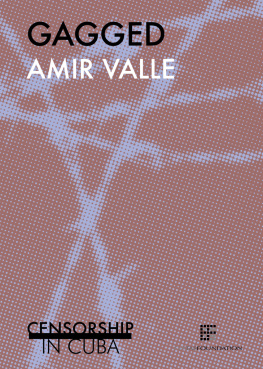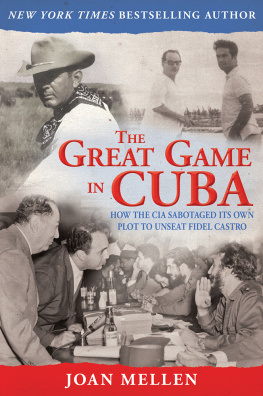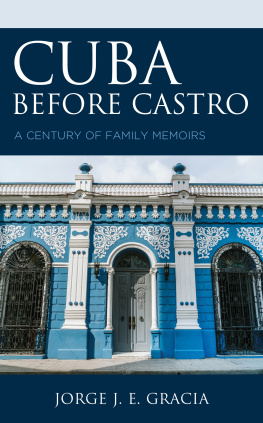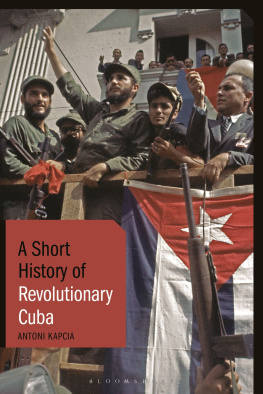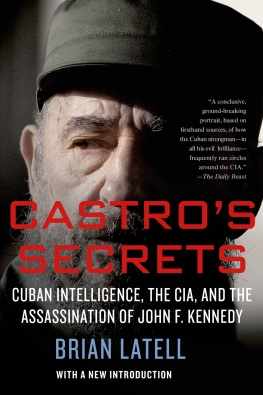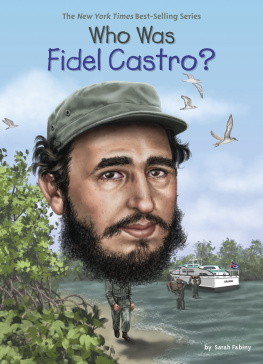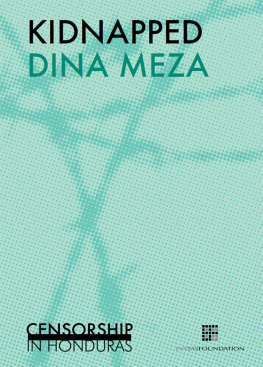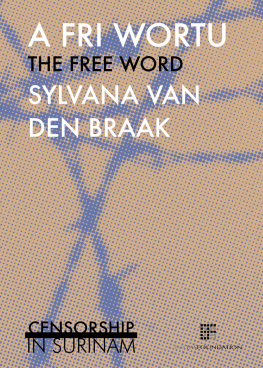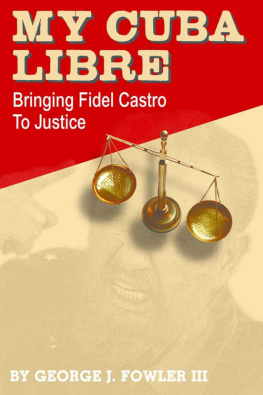Amir Valle
GAGGED
Censorship in Cuba
Translated by Jill Powis

Eva Tas Foundation | Amsterdam
In Difficult Times
Heberto Padilla,
from Fuera del Juego (Sent off the Field) 1968
They asked that man for his time
so they could join it to the time of History.
They asked for his hands,
()
They asked for his eyes
(...)
They asked for his lips
()
They asked for his legs
()
They asked for his chest, his heart, his shoulders.
()
Later they explained
that all this giving would be pointless
unless he handed over his tongue,
because in difficult times
there is nothing as useful for stopping hatred and lies.
Ethics versus repression and censorship
This is a necessary book because of the unique analysis it provides of the suppression of freedom of expression in Cuba by Fidel Castros revolutionary government. From the triumph of the Cuban Revolution in 1959 to the Raulist Era of today, it offers a chilling survey of the most significant cases of cultural repression and censorship perpetrated by the longest Communist dictatorship in the world.
It is also an important book, because it is written by Amir Valle, who has witnessed first hand the oppressive and painful wounds inflicted by censorship and cultural repression. It is therefore not a text written by someone who has coldly studied the issue but rather the honest reflections of a Cuban intellectual, a victim of this censorship and repression someone who speaks from experience.
Amir Valle was the natural leader of our generation, the group of writers that literary studies call the Novsimos [literally, The Very Latest]. He was the first of all of us to win national awards and he had the misfortune to suffer censorship before the rest of us, because his work was always critical. He was also the first of us to publicly oppose the regime most of us were critical in private, but we told him then that he was wrong, that our role was to write, not to play politics. Although the circumstances were traumatic, he had the good fortune to become, of our generation, the author of the most popular clandestine book in Cuba, Habana Babilonia (Havana Babylon) about prostitution, and although only around 7 of those 50 writers remain in Cuba, of all of us he was the only one sent into exile in a dirty manoeuvre by the government to remove his bad influence on Cuban intellectuals. He is also one of the exiles most detested by the Castro brothers dictatorship, because of his ethical stance, his intellectual honesty, his deep knowledge of the reality of political and cultural power in Cuba, and his tireless work as an author and journalist to reveal the sinister truths Castroism wants to conceal from the world.
When colleagues from the Eva Tas Foundation decided to publish this book, Amir wrote to me. Dear brother, Im in a dilemma. I have to write a book about the history of cultural censorship. As you know, my case is considered a key example it should be in that book, but ethically, I cant talk about myself. So we agreed that I would write these words because it is true that any document on the issue in Cuba which excluded the censorship he suffered from his first literary steps until his exile would be incomplete and distorted. I also write these words in gratitude for his generosity. Amir Valle helps any writer who comes to him. Many of the writers of our generation and later generations, well-known today in Cuba and beyond, were his students and a number have even had their books published by international publishing houses as a result of his support. Not only that, when he found out that the Cuban political police had imprisoned me following a show trial to punish me for criticising the dictatorship in my blog Los hijos que nadie quiso (The children nobody wanted), Amir, (as well as becoming my unpaid literary agent), joined forces with the Argentinian artist and human rights activist Elisa Tabakman to form a duo to which I owe thanks for raising international awareness of the injustice perpetrated against me and for the vast majority of the expressions of support I have received from cultural and political figures and international institutions.
_ Amir Valle, the trail-blazer...
I met Amir Valle in 1986, at the Alejo Carpentier Centre in Havana, where the Ministry of Culture was holding a National Seminar for Young Writers, which brought together almost all of our generation, the Novsimos. I was making my first attempts to write when most of those invited had already won awards at the national Literary Workshops. I felt as though I had been plunged into a distant and unknown universe. I had just been released from prison for failing to report my family when they tried to leave the country secretly for the first time. However, what I remember most clearly was my admiration: I regarded them as if they were Nobel Laureates. We had barely introduced ourselves when there was a kind of explosion of affinity, literary interests, emotions. Amir was special: the moment you knew him you liked him. I was very proud to accept his friendship: at his young age, he was already a legend in the Cuban literary world, someone who made you feel that one day soon he would the great figure of Latin American literature that he is today.
I can safely say, because I witnessed it at first hand, that (with the exception of his first prize and his first book, Tiempo en cueros, (Time naked), tales of his childhood in a rural town, published when he was 21) every one of his awards, books and literary and journalistic successes has been a struggle against various forms of censorship, ideological control and cultural repression. In a long interview I had with him in July 2005 when I was still in prison, I forced him to make public many of these struggles against censorship which he had never wanted to talk about. Anyone who reads this interview will reach a clear conclusion: life has rewarded Amir Valle with international prestige, the respect and gratitude of the vast majority of his colleagues, and the fear of his words on the part of the Cuban Revolutions cultural commissars, simply because he has never stopped working, fighting, defending the freedom of his ideas. It has not been easy: in one of our exchanges of messages while I was in prison, he confessed that for every joy during his thirty-year literary career he had received more than a dozen bitter blows. But I can sleep with a clear conscience, I can look anyone in the eye with my dignity intact and I can say that everything that I have I have won cleanly, far from all those shady secret meetings, literary cliques and ideological and cultural factions that, on all sides of the Cuban question, live off the suffering of our people, he wrote to me at that time.
I will give this brief summary to give the reader an idea of this difficult intellectual journey:
In 1983, aged 16, he joined the Literary Workshops Movement in Santiago de Cuba, which at that time were very important. By 1984 his problems were already beginning. He conceived and founded, with other young writers, a literary group, Seis del Ochenta (Six of the Eighty), which immediately received threats from the censors, as in their manifesto they announced that they intended to write about taboo and problematic subjects relating to Cuban reality. All its members were warned by the political police that their ideas could be exploited by the enemies of the revolution, and counterintelligence officials planted a spy in their ranks (another young writer). Due to the critical nature of their stories, it was Jos Mariano Torralbas and Amir who suffered the severest censorship. They were put on a blacklist that would force Torralbas to emigrate when all doors were closed to him in Cuba; it was a blacklist that Amir would never be taken off.

